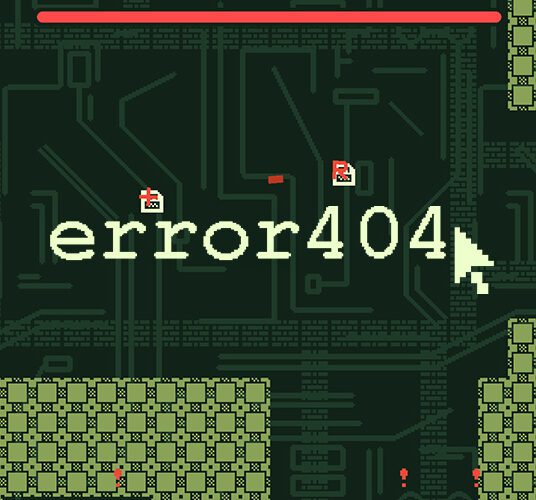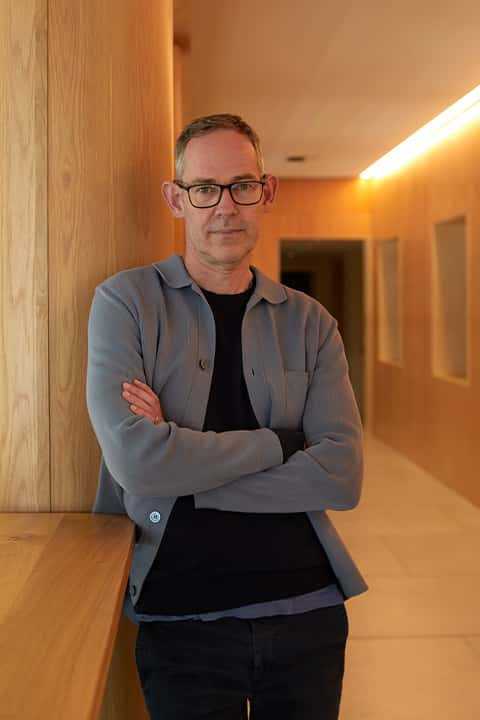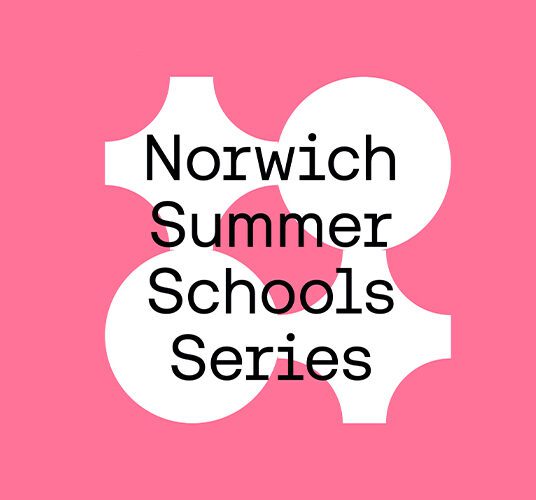



Film and Moving Image Production BA (Hons)
Length:
3 or 4 year options
UCAS Code:
W613 (3 Year)
W612 (4 Year)
Institution Code:
N39
Sandwich courses:
Creative Professional Development (1 year, Level 5 diploma), or Creative Computing (1 year, Level 5 diploma), available between years 2 & 3
Unleash your artistic vision by combining the art of creative storytelling with practical industry skills across various filmmaking mediums.
Creative storytelling lies at the heart of our BA (Hons) Film and Moving Image Production, around which a multi-disciplinary student experience revolves. We’ll encourage you to experiment with various filmmaking mediums and platforms, and you’ll learn to become a flexible, multi-skilled collaborator with technical and craft skills highly prized by the industry.
Watch our 2023 Graduate Film Showreel
Entrepreneurial skills won’t take a back seat as you pitch films to professional visitors and explore film marketing and distribution strategies, including festival and contest entries and online platforms. And you’ll make full use of the industry networks associated with the course, attending craft workshops with leading writers, directors, producers, production designers, sound designers and cinematographers.
You’ll explore how the production skills you use and the creative choices you make can shape and change the story you are telling. Your focus will be the short film form, including original and adapted drama, documentary, advertising and Commercial editorial work. The final year provides opportunities to write, produce or direct an original short film and submit it for selection for a special industry screening. There’s also the potential for international exposure through online screenings and Norwich’s Graduate Showcase.
Accredited by:
- ScreenSkills Select
- BAFTA albert
Why study with us
- Develop your storytelling skills and your critical and creative craft skills such as producing, script development, direction, cinematography, sound design, production design and editing.
- Learn industry standard approaches to the filmmaking process from development, pre-production, through production to post-production.
- Collaborate in production teams on a range of practical projects including original and adapted fiction, documentary, experimental film, music/dance video and fashion film.
- Reflect on the impact of your creative, technical, and practical decision making on your production, its audience and relationship to wider contemporary debates.
- Gain in-depth knowledge of legal, moral and ethical standards as they impact production including essential training via BAFTA albert in climate science and sustainable production.
Course Content
Year 1
- Develop your storytelling skills and your fundamental creative craft skills such as producing, script development, direction, cinematography, sound, editing and colour grading.
- Learn industry standard approaches to the filmmaking process including pre-production, production and post-production
- Work in production teams on a range of practical projects including visual narrative, drama adaptation, sound design and production design
- Interview and write a case study about a person currently working in the film industry
- Produce individual supporting research and documentation in the form of a research and pre-production blog.
Year 2
- Further develop industry awareness and storytelling skills, working on briefs with industry clients and experts
- Consolidate skills and knowledge in the wider context of film forms, including documentary and advertising films, alongside different forms of drama
- Develop collaborative working skills on projects with students on other courses, as well as work placement opportunities and live industry projects
Year 3
- Produce, direct, shoot and post-produce a short film
- Receive feedback and advice on your film from a panel of professionals working in the film industry
- Receive support to develop a five-year employability plan, including plans to seek out industry placements, internships, mentors and employment, as well as ways to develop your final film for festival (contest) submission
- Write a Research Report on an area of film production, culture or audience that reflects your interests.
Careers Information
The final year provides opportunities to specialise and develop a portfolio of professional level film practice across a range of crafts. This might include writing, directing, producing, editing, cinematography, sound design and production design. You’ll also develop an in-depth knowledge as working as a head of department and a range of supporting roles in each department.
Our graduates’ work has won film festival awards in London, LA and Tokyo. Their films have been recognised through Royal Television Society Awards and BAFTA Crew.
Alumni have roles across the industry, released feature films in cinemas worldwide and have had films premiering at Berlin Film Festival and Sundance Film Festival.
Typical career paths include
- Director
- Producer
- Director of photography
- Editor
- Sound designer
- Assistant director
- Camera operator
- Location manager
- Art director
- Production designer
- Screenwriter
- Script supervisor
You’ll also get specialist creative careers advice from our Business and Employability Team to help support you as you plan your career.
Tanicha Toro-Oloto
Tabbed Section
Typical UK offers
A / AS Levels – GCE
GCE A/AS Levels 3 A-level qualifications at grades BCC (104 UCAS Tariff points) or above. Where candidates are not taking 3 A-levels, Norwich University of the Arts will consider combinations of A-level/AS-level and other Level 3 qualifications.
BTEC Extended Diploma (QCF or RQF)
Distinction, Merit, Merit in an art, design or media related subject
BTEC Diploma (QCF or RQF)
Distinction*, Distinction* in an art, design or media related subject
T Levels
A T Level in any subject with overall grade Merit or above
UAL Extended Diploma
Merit
UAL Level 3 Foundation Diploma in Art and Design
Pass
UAL Level 4 Foundation Diploma in Art and Design
Pass
Foundation Diploma in Art and Design
Pass
Access to Higher Education Diploma (Art and Design)
Pass
International Baccalaureate Diploma
A minimum of 26 points
Norwich University of the Arts welcomes applicants of all ages from all backgrounds. Your application will be primarily assessed through your portfolio (if required), responses to questions asked and personal statement, so even if you have no formal qualifications or do not meet our typical offers it can still be worth applying.
If you are studying at the time of your application and your application is successful it is likely that you will receive a conditional offer.
If the qualification that you are studying is not shown, do not worry as we are able to accept other pre-entry qualifications as well as combinations of different qualifications. Please do contact our Student Recruitment Team if you have any queries.
International applications
We accept qualifications from all over the world. To find our entry requirements from a specific country, please check our dedicated international pages.
Most international students are required to hold an English language qualification. Applicants are required to have a minimum UKVI approved IELTS exam score of 6.0 overall, with a minimum of 5.5 in each section. Equivalent English language qualifications are acceptable such as, IB English language syllabus A or B/English Literature (Grade 4).
We also accept some alternative English qualifications. Learn more about our English entry requirements.
You can email us on international@norwichuni.ac.uk if you’d like to discuss your application individually.
BA (Hons) Film and Moving Image Production degree portfolio guidance
Portfolios should show examples of your work — both finished and work in progress — that demonstrate your interests and skills. Your portfolio should be made up of work that reflects your creativity, personal interests and influences, as well as demonstrating your technical skills and ability. It doesn’t have to be perfect as we can assess your potential from your work in progress.
Your portfolio should be relevant to this course, but you can include a range of work that shows your creativity, technical competence, and understanding of narrative.
You may wish to include one of the following:
- Short Film (max duration 5 minutes – complete films only)
- 6 still images – photographs, photoshop images – organised in a sequence to tell a story
- A short script, short story, or other creative writing – no more than 3 pages
Further portfolio advice and tips
Get more advice on presentation formats, layouts and when to submit your portfolio in the application process.
2024/25 University fees for new entrants
Norwich University of the Arts will assess students’ tuition fee status using the guidance provided by the UK Council for International Student Affairs
Students from the UK or Ireland and EU students with ‘Settled’ or ‘Pre-Settled’ status will be charged ‘Home’ fees if they meet the relevant residency requirements. They will usually be eligible for a tuition fee loan from the UK government, meaning that they won’t have to pay Norwich University of the Arts’ tuition fees upfront.
Students who do not meet the necessary residency requirements will usually be charged ‘Overseas’ fees and will not be eligible for the UK government tuition fee loan. Since 2021/22, this includes new entrants from the EU, EEA, and Switzerland who do not have ‘Settled’ or ‘Pre-Settled’ status, because the UK has now formally left the EU.
| Fee status | Course | Annual fee |
|---|---|---|
| Home | Undergraduate degree (full-time three and four year degree) | £9,250 |
| Overseas | Undergraduate degree (full-time three and four year degree) | £18,000 |
Inflation in subsequent years
The rules for inflation on fees in subsequent years depend on the type of fee status and level.
- For Home undergraduate students starting in 2024, inflation may be applied to your fees in later years, if the UK government were to increase the fee cap beyond the current limit of £9,250 per year. If such an increase were to apply, we would confirm this in advance to you of each academic year, and we would limit the increase to the maximum allowed by the Office for Students.
- For Overseas undergraduate students starting in 2024, inflation will be applied to your fees in later years. We will confirm this in advance to you of each academic year, and we will limit the increase to no more than the Office for Students’ recommended inflationary measure, which is RPI-X. RPI-X is calculated by the Office for Budget Responsibility. In setting fees for the following year, we will use the Office for Budget Responsibility’s RPI-X forecast for quarter 3 of the relevant year.
For Home and overseas postgraduate degree students starting in 2024, fees will remain the same for each year of your course.
Financial support for UK students in 2024
Tuition fee loans and loans for living costs are usually available to UK and some EU students, as well as non-repayable Norwich University of the Arts bursaries based on family income. Find out more about applying for funding.
International students
We offer a range of scholarships for international students to support your studies with us.
- Group briefings
- Academic tutorials
- Group tutorials
- Lectures
- Workshops
- Critiques (crits)
- Seminars
- Finished pieces of work
- Presentations
- Written work
- Your research
- A reflective journal
Between Years 2 and 3 of this course, you’ll have the opportunity to undertake one of the following additional qualifications:
Creative Professional Development (1 year, Level 5 Diploma)
Our Creative Professional Development Diploma gives you the chance to spend a year exploring your post-uni job options through a structured programme of input sessions and work-based learning. This year offers two much-sought-after industry placements – the first lasting six weeks, the second 12 weeks, and a group project or ‘hackathon’ exploring freelancing and business start-up.
Creative Computing (1 year, Level 5 Diploma)
Our Creative Computing Diploma introduces you to coding and computational skills that will advance and complement your creative practice. No prior experience of coding is needed, just a curiosity about creative computing and a desire to push your own practice into new realms. You’ll also develop a wider knowledge of the creative tech industries, available roles and opportunities.
Integrated Foundation Year
Four year degrees are exactly the same as our three year degrees but include an extra year of study at the beginning – an Integrated Foundation Year.
An Integrated Foundation Year is about developing the skills, knowledge and the confidence you need to successfully complete your degree course. Building on your experience from A Level or equivalent courses, the Integrated Foundation Year curriculum allows time to develop the practical, creative and conceptual skills that are critical to successfully completing an undergraduate degree at Norwich. You will achieve this, making full use of the University workshops and studio facilities.
While studying an Integrated Foundation Year on BA (Hons) Film and Moving Image Production you’ll come together with years 1, 2 and 3 for weekly guest lectures and screenings. You’ll also engage with a number of projects that will help build your film production skills. The first of these is ‘Story’, where you’ll work with tutors to develop a script, thinking about character development, plot devices and narrative conventions.
You’ll then move into Pre-Visualisation, taking your script forward, storyboarding and producing shot lists, prop lists and lighting diagrams. You’ll then put the preparation and planning from the previous two projects into practice as you film your studio based drama.
Typical UK offers and entry requirements for Integrated Foundation Year entry
GCE A/AS Levels
2 A-level qualifications at grades CC or higher.
BTEC Extended Diploma (QCF or RQF)
Merit, Merit, Pass in an art, design or media related subject
BTEC Diploma (QCF or RQF)
Distinction, Merit in an art, design or media related subject
T Levels
Pass (D or E on the core)
UAL Extended Diploma
An overall Pass
UAL Level 3 Foundation Diploma in Art and Design
An overall Pass
Foundation Diploma in Art and Design
Pass
Access to Higher Education Diploma (Art and Design)
Pass
International Baccalaureate Diploma
A minimum of 24 points
Norwich University of the Arts welcomes applicants of all ages from all backgrounds. Your application will be primarily assessed through interview and portfolio review so even if you have no formal qualifications or do not meet our typical offers it can still be worth applying.
Find out more about four year degrees at NorwichTeaching Staff
News
@norwichuniarts
Introducing Barry Leith, esteemed animator and director who was part of the team that first brought the Wombles to life.
Barry is a regular visitor on our BA (Hons) Animation course, and recently he was working with our stop motion third years, lending his expertise to help plan and troubleshoot their final projects.
: @norwichuni_animation_avfx
: @womblesofficial
: @helenanimate
#WeAreNorwich #thewombles #barryleith #animation
View this post

Norwich Student wins at Ukie Student Game Jam 2024
BA (Hons) Games Art and Design student Charlie O’Shea was awarded Best Moment-to-Moment Gameplay award for his game ‘error404’.
View news article

In conversation with
Theo Galvin is an Architecture MArch student who works towards a provocative experimental style of architectural design, related to socio-political issues, specifically around the topic of waste disposal, perception and reuse. Theo talks to us about his opportunity with The AA Taiwan School Fellowship Programme 2023: Urbanity from the Ocean.
View blog
















